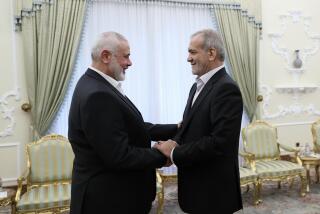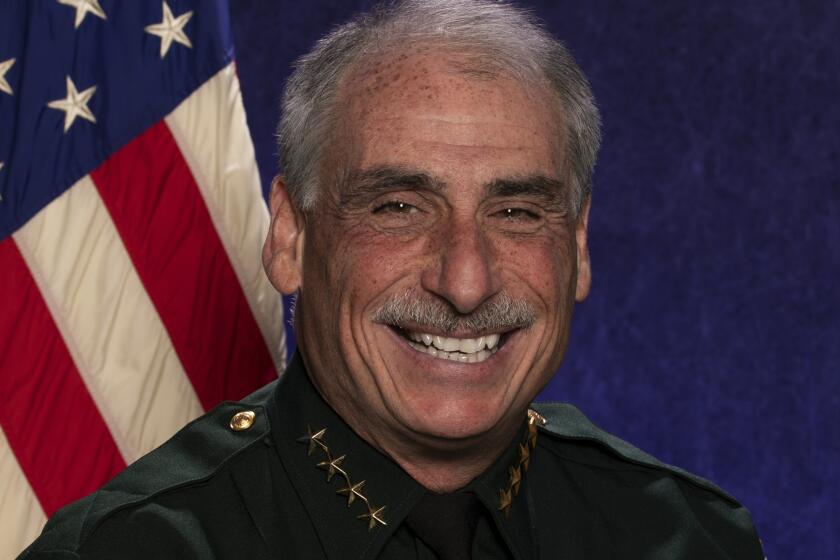Egypt’s Sisi sworn in as president, calls for ‘more stable future’
To the volley of a 21-gun salute, Egypt’s new president, Abdel Fattah Sisi, was inaugurated Sunday in a day of triumphal ceremonies, formally assuming leadership of a nation plagued by political turmoil and economic woes.
Sisi’s swearing-in took place at the Constitutional Court, the same venue for the inauguration of Mohamed Morsi, the elected president he overthrew nearly a year ago following huge protests demanding the Islamist’s removal. Later, he received dignitaries, diplomats and monarchs at the presidential palace.
“The time has come to build a more stable future that writes a new reality for this country -- a reality that makes hard work the platform of our lives,” said the former field marshal, who left the army to run for president as a civilian. He urged Egyptians to reject chaos in favor of order, and said freedom must be exercised with “responsibility.”
Authorities decreed the inauguration day a national holiday, and the former defense chief’s ascension was marked by tight security and displays of military strength. Police and soldiers were deployed throughout the capital, and the former army chief reviewed an honor guard as military helicopters thudded overhead.
Supporters gathered to celebrate in Cairo’s Tahrir Square, the epicenter of the 2011 revolution that toppled longtime autocrat Hosni Mubarak. In the square, there was a carnival atmosphere, with street vendors and flag-waving children. But the mood was funereal among those alarmed by a sharp curtailment of basic rights in the past 11 months.
The 59-year-old Sisi, who had served as the country’s de facto leader since last July’s removal of Morsi by the army, was elected president last month in a landslide vote. International monitors said the balloting itself was conducted correctly, but criticized the atmosphere of repression surrounding it.
Morsi and thousands of his followers in the now-banned Muslim Brotherhood are in jail, and the deposed president could face the death penalty if convicted on charges that include espionage and murder. More than 1,400 Morsi supporters have died in clashes with security forces in the past year.
Secular opponents of the interim government have been targeted by the authorities as well. Some of the leading figures in the 2011 uprising are behind bars, and their supporters say Egypt has reverted to the police-state style of governance that characterized the Mubarak era.
Mubarak himself is imprisoned in a military hospital nearly adjacent to the court complex where the swearing-in took place.
Egypt’s key Persian Gulf allies sent senior figures to the ceremonies, but reflecting the government’s chilly relations with the U.S., a presidential announcement describing those in attendance listed the American representative, a State Department aide, last. Most Western governments were represented by ambassadors.
Sisi made a point of thanking Saudi Arabia, which has provided Egypt with a multibillion-dollar financial lifeline during the interim government’s time in power.
The assumption of power by Sisi, a career army officer, marks a return to Egypt’s long tradition of leaders drawn from the ranks of the military. The only exception in six decades was Morsi, who lasted less than a year in office.
Special correspondent Amro Hassan contributed to this report.
More to Read
Sign up for Essential California
The most important California stories and recommendations in your inbox every morning.
You may occasionally receive promotional content from the Los Angeles Times.










